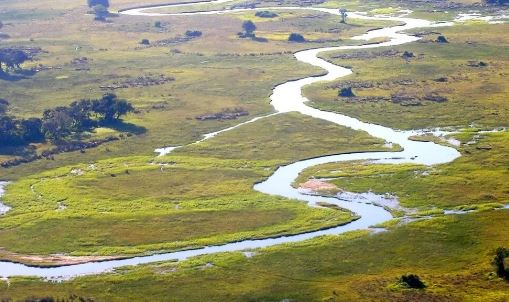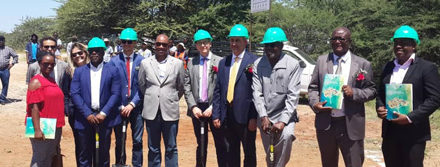
Transboundary water resources cooperation is a ‘must, not a choice’ – official

Transboundary water cooperation is crucial for water security, sustainability, and socio-economic development as the country shares perennial rivers with neighboring countries.
This was highlighted by the Ministry of Agriculture, Water, and Land Reform deputy minister, Anna Shiweda, at a national workshop held in Windhoek on Namibia’s accession process to the Convention on the Protection and Use of Transboundary Watercourses and International Lakes of 1992.
“In today’s interconnected world, water availability is directly related to peace and security. World-wide pressure on freshwater is rising with climate change, pollution, and growing demand for water further contributing to water insecurity,” she said.
Therefore, transboundary water resources cooperation is a ‘must, not a choice’ she added.
According to Shiweda, being part of this convention will add value to the implementation of the existing bilateral and multilateral agreements, as well as protocols to promote joint management and sustainable development of the internationally shared waters.
The workshop organised by the Ministry of Agriculture, Water and Land Reform in partnership with the United Nations Economic Commission for Europe (UNECE) and the UNDP, shared with relevant stakeholders the processes initiated by Namibia to become party to the convention.
Shiweda said as part of Namibia’s commitment to transboundary water management, the country has all its freshwater bodies covered by operational management arrangements having entered into and ratified basin agreements for the establishment of the Okavango-Cubango River Commission (OKACOM) shared with Angola and Botswana; the Orange-Senqu River Commission (ORASECOM) shared with South Africa, Botswana, Zimbabwe); the Zambezi Watercourse Commission (ZAMCOM) with all other riparian states of Botswana, Malawi, Mozambique, Tanzania, Zambia and Zimbabwe; and the Cuvelai Watercourse Commission (CUVECOM) with Angola.
Speaking at the same event, Secretary of the Water Convention, Sonja Koeppel said multiple challenges such as increased water scarcity and droughts due to climate change and development, and increasing pollution remains pivotal in transboundary water cooperation.













































